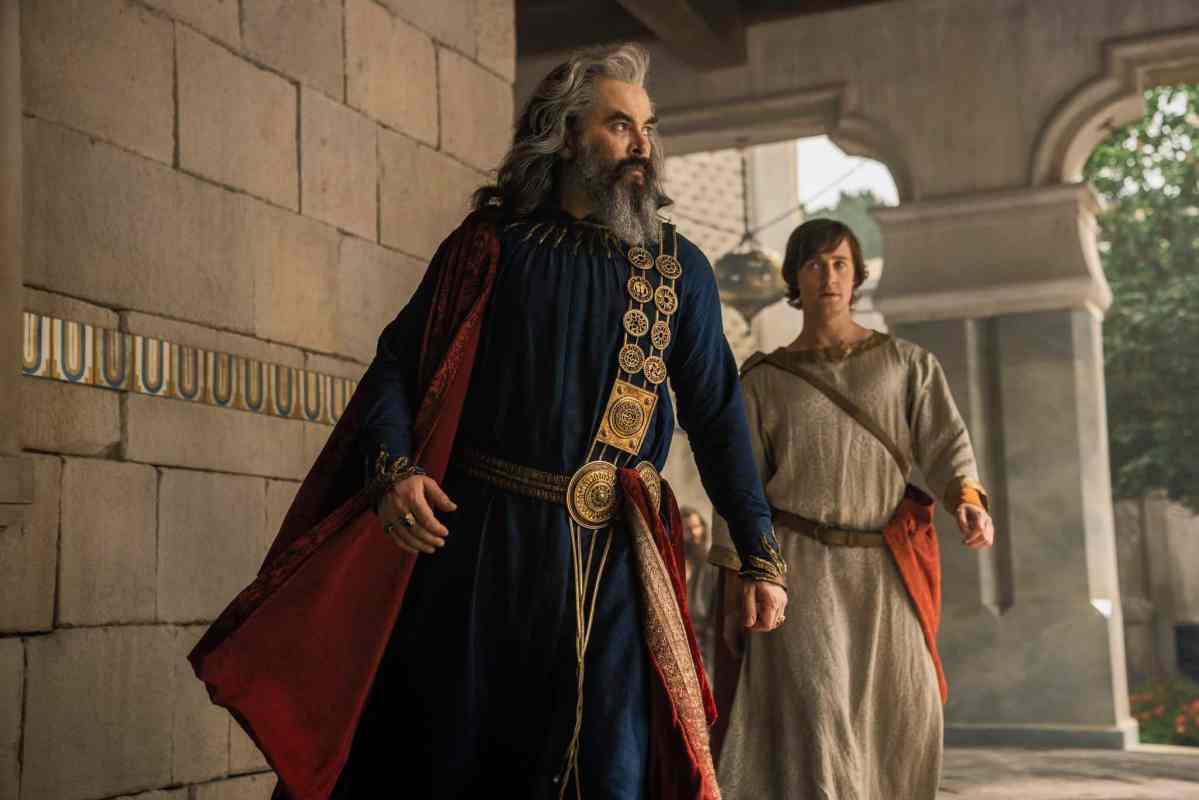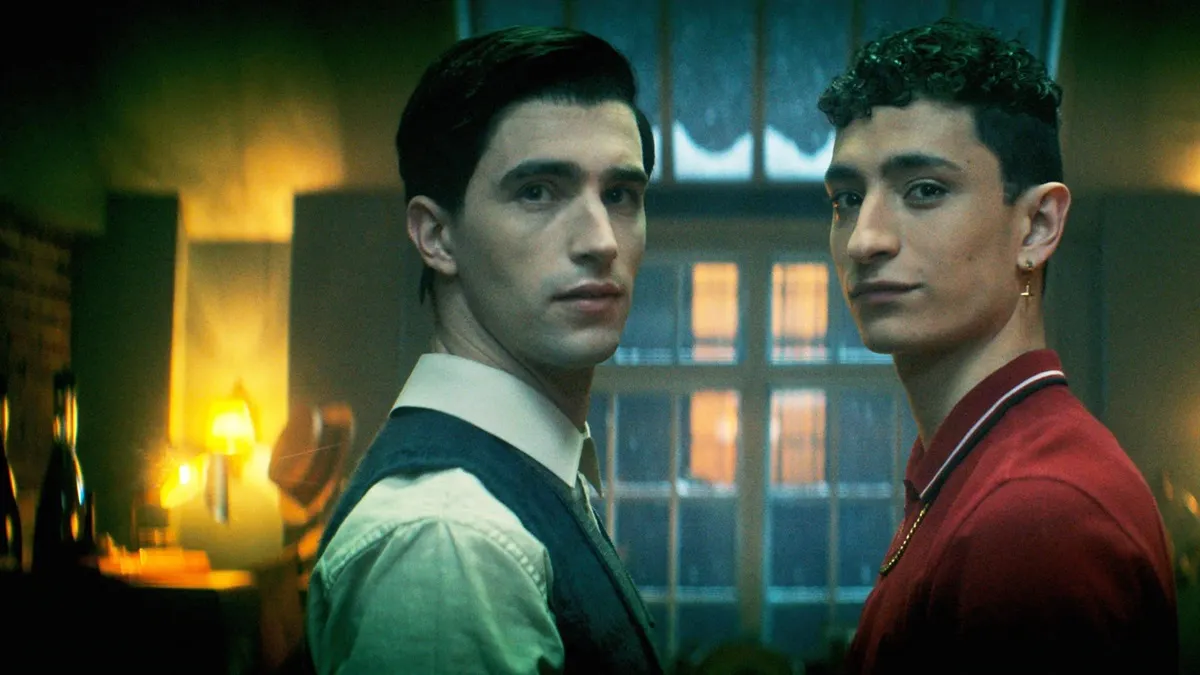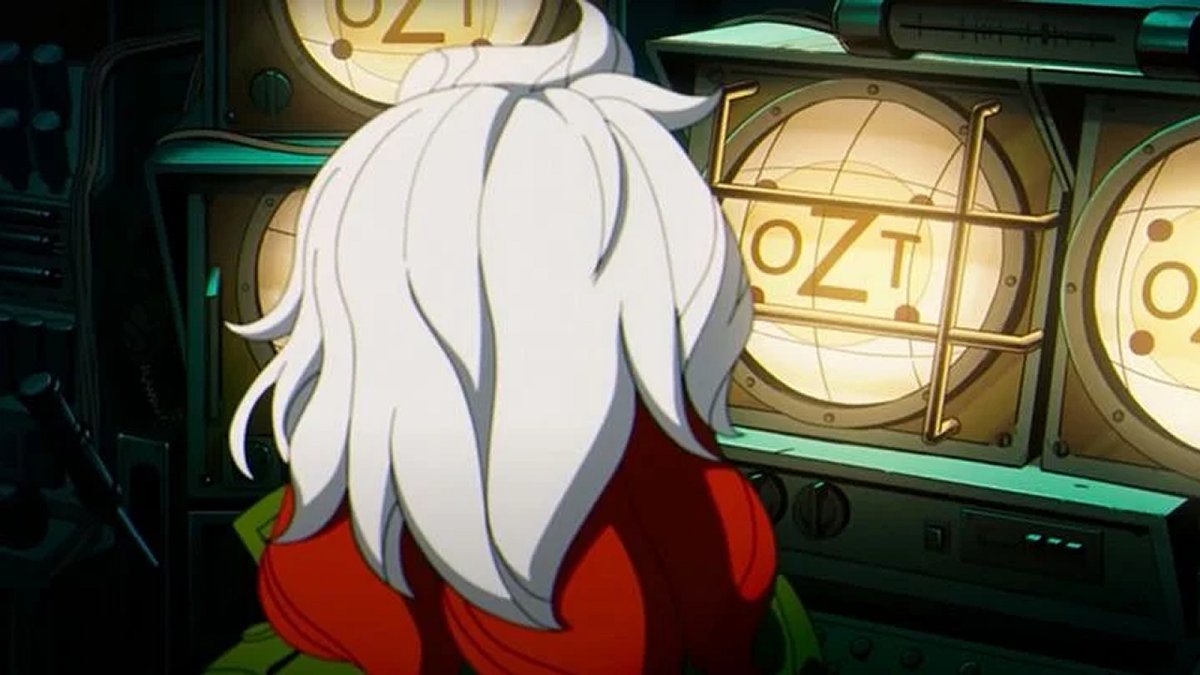This discussion and review contains light spoilers for The Lord of the Rings: The Rings of Power episode 5, “Partings,” on Amazon Prime Video.
At its core, both The Hobbit and The Lord of the Rings were stories about journeys. J.R.R. Tolkien even gave The Hobbit the subtitle There and Back Again. There is a clear sense of momentum to those stories. They are mythic quests for their protagonists. This is obviously true of hobbits like Bilbo (Martin Freeman) and Frodo Baggins (Elijah Wood), but it is also the case for characters like Gandalf (Ian McKellen) or Aragorn (Viggo Mortensen). There is always somewhere to go, somewhere to see.
While Peter Jackson’s cinematic adaptations might have had a few fixed locations to which they would frequently return, such as Isengard, the films were structured in such a way as to create the sensation of progress and movement. With the notable exception of The Battle of the Five Armies, by consensus the weakest of the six films, each of the movies went out of its way to show audiences some new facet of Middle-earth. To a certain extent, they were travelogues.
“Partings” opens with a segment that seems to understand this, following the harfoot migrants as they journey across the wilderness. It’s a sequence that works better as mood than as narrative, with Nori (Markella Kavenagh) singing over a montage of their travels, ending on a paraphrased version of Tolkien’s famous observation that “not all those who wander are lost.” It is a sequence that gives a sense of genuine scale to this adventure, complete with handy map overlays.
In general, The Rings of Power works better as a mood piece than as a story. The best moment in “The Great Wave” had nothing to do with plot, focusing on the dwarven rituals of Moria. The best parts of “Partings” are montages of wandering, maps, and flashbacks of elven creation myths. There’s even a nice sequence of Halbrand (Charlie Vickers) confessing his own shame, cut against Waldreg (Geoff Morrell) bowing to Adar (Joseph Mawle), connecting two plot threads across time and space.
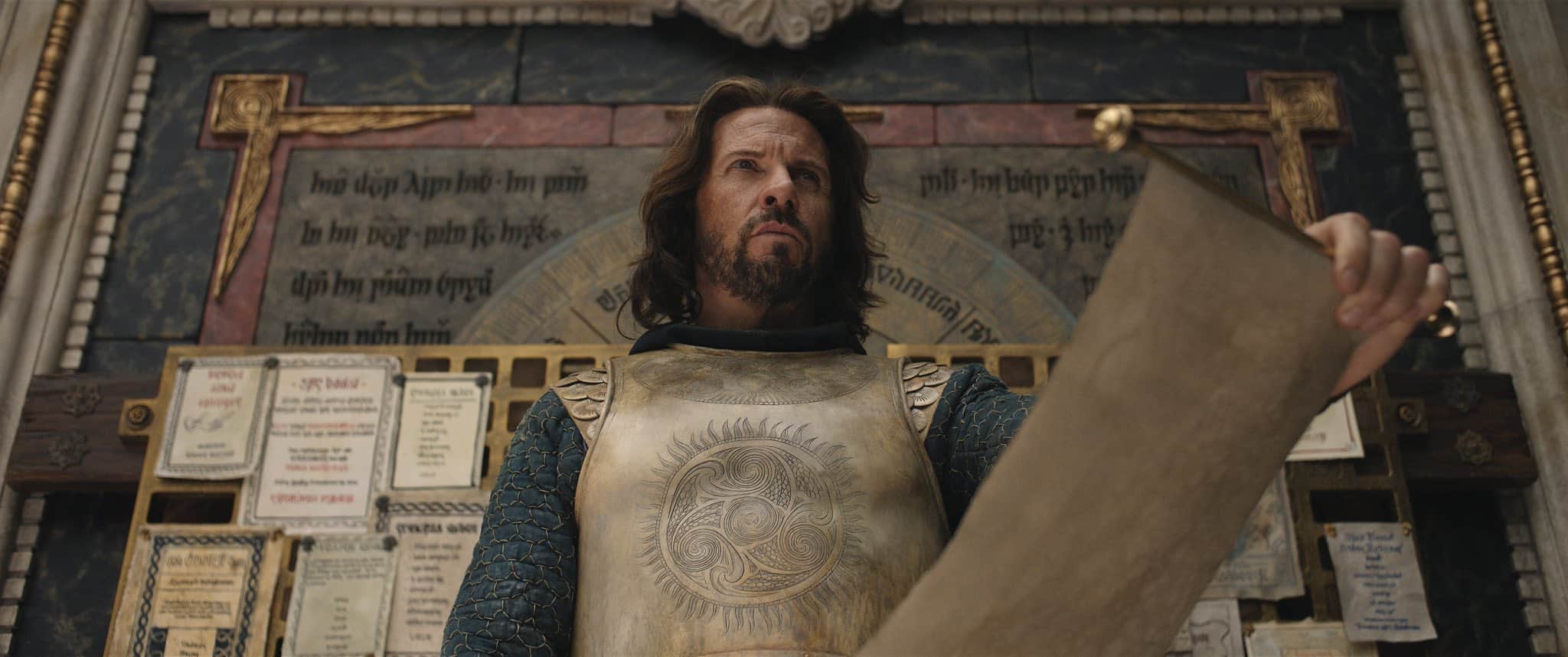
Unfortunately, these moments contrast with the rest of the episode. One of the biggest problems facing The Rings of Power is that it feels far too stationary. “Partings” arrives four hours into the season, which is longer than even the extended cut of any of Jackson’s films, and there is little sense that the characters have actually gone anywhere — let alone that their destination is in sight. Nori and her caravan might be wandering, but everybody else is stuck in place.
This is most obvious with Galadriel (Morfydd Clark). The first episode of the season, “A Shadow of the Past,” ended with Galadriel jumping off a boat heading away from Middle-earth. Over four hours later, “Partings” ends with Galadriel climbing on board a boat to head back to Middle-earth. Everything that has happened involving that character has felt like it has been treading water, waiting for the other plot threads to catch up with it.
“Adrift” delayed Galadriel’s return to Middle-earth by trapping her on a raft menaced by a sea monster. In “Adar,” Galadriel was rescued by the Númenóreans and taken to their island paradise, where she tried to convince them to return with her to Middle-earth. At the end of “The Great Wave,” Galadriel got on a boat to sail back to Middle-earth, only for Queen Regent Míriel (Cynthia Addai-Robinson) to stop her and pledge her forces. Theoretically, this should be progress.
Instead, “Partings” delays Galadriel’s departure from Númenor once again, devoting the entire episode to the Númenóreans preparing for and then prevaricating about their “expedition.” It’s painfully and unnecessarily extended, to the point that it wouldn’t be entirely unpredictable if the next episode were wholly devoted to the ships getting stuck in the harbor and having to work out the best way for them to get out.
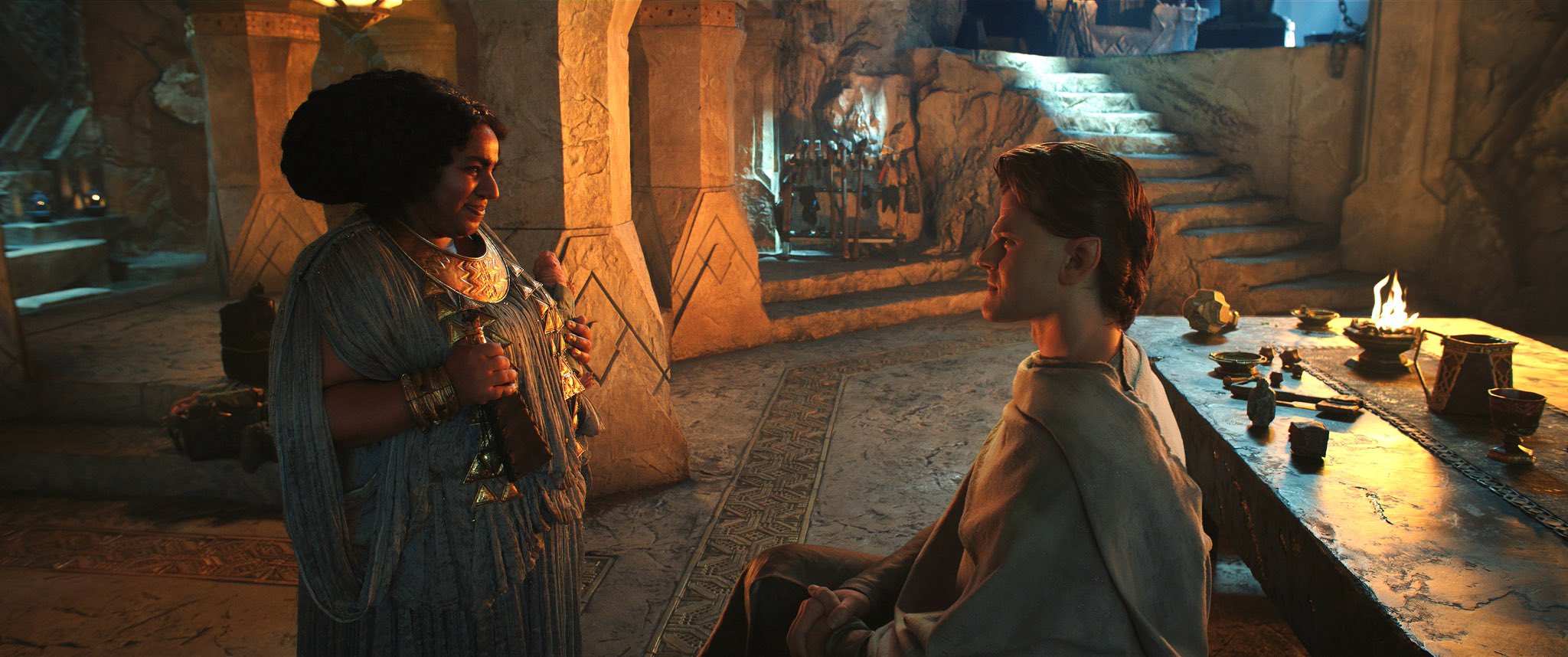
This is frustrating for a number of obvious reasons. Most obviously, it feels like The Rings of Power is spending an extended period of screen time watching nothing meaningful happen. More than that, the problem is compounded by the fact that Galadriel is very much the show’s central protagonist. “A Shadow of the Past” opened with her narration and an extended introduction following her hunt for Sauron. Morfydd Clark is also the show’s beating heart.
It’s not great for The Rings of Power to trap its primary character and its best actor in a narrative limbo. The problem is compounded by the fact that Galadriel hasn’t actually done anything. Her stay in Númenor could have been a way of illuminating her character, demonstrating her ingenuity and resourcefulness. It could have been an obstacle for her to overcome, a crucible in which she was tested. It could have given the audience a reason to root for her.
Instead, Galadriel has largely been reactive and confrontational. There are the bones of an arc here, with Galadriel alienating Míriel and presumably having to learn humility. It’s a classic story structure: The hero tries and fails, only to learn from their mistakes and succeed. However, Galadriel doesn’t accomplish anything here. She doesn’t convince Míriel to send her armies to Middle-earth. Galadriel is leaving when the leaves start falling from the White Trees, and that convinces Míriel.
However, it’s not clear that The Rings of Power understands this. Early in “Partings,” Galadriel offers a somewhat skewed summary of events to Halbrand, explaining, “I have just convinced Númenor to send five ships and 500 men to aid your people and place a crown upon your head.” That is very clearly not what actually happened, and it is a fundamental problem if that is what The Rings of Power thinks it has depicted.
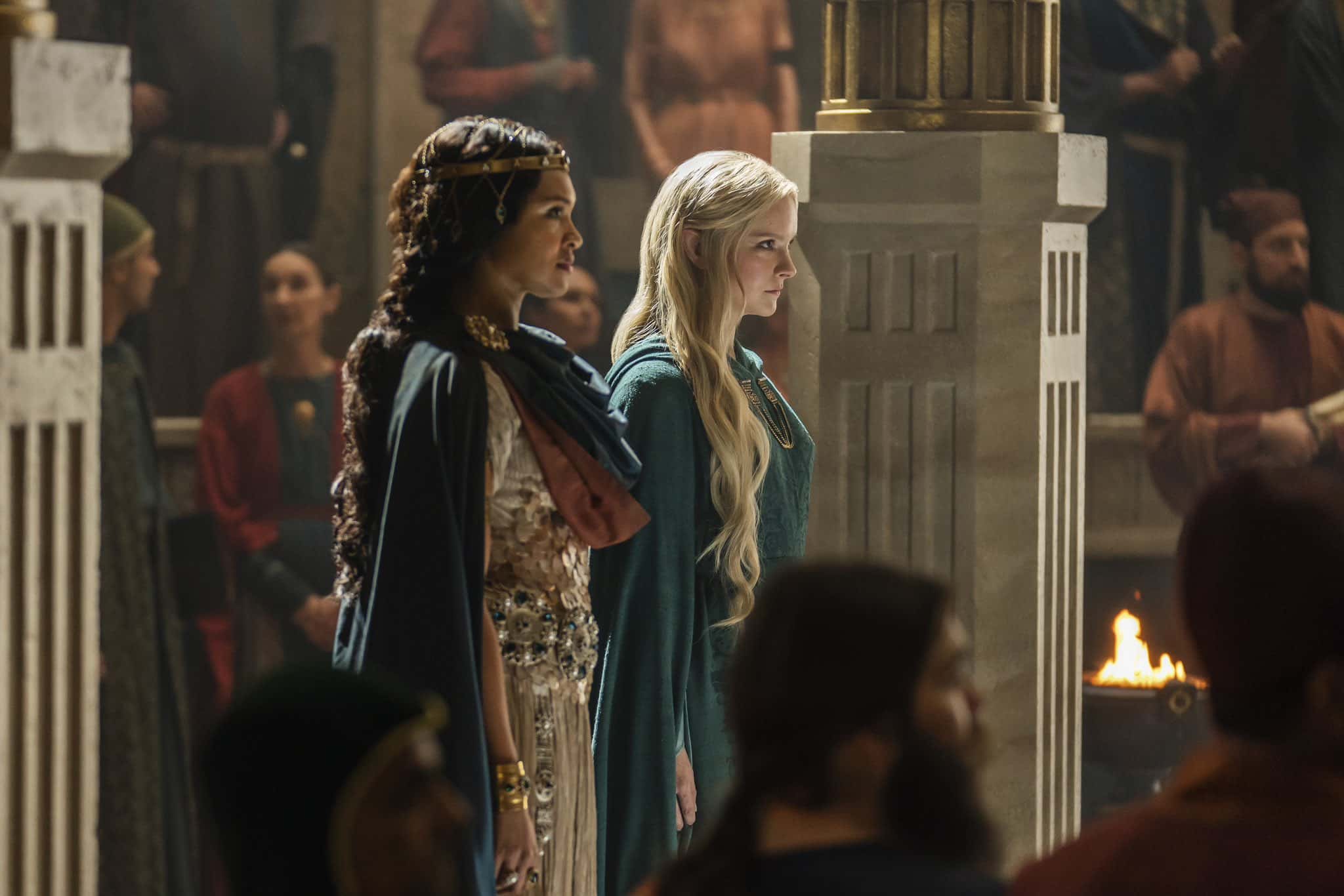
This is deeply frustrating. At this point in the season, it feels like it might have been more interesting to follow Galadriel’s pursuit of Sauron into the northern wastes of Forodwaith from “A Shadow of the Past,” because at least that would have some sense of purpose or movement. The Rings of Power is a show that is frequently cutting between a set of static locations, and none of the characters in those locations are compelling or complex enough to justify the sedentary pacing.
The political drama in the Númenórean Court is unengaging and invites unflattering comparisons to the scheming and plotting on House of the Dragon. Chancellor Pharazôn (Trystan Gravelle) is obviously and cartoonishly evil. Isildur (Maxim Baldry), Valandil (Alex Tarrant), and Ontamo (Anthony Crum) aren’t especially compelling either. The same is true of another of the episode’s locations, with Arondir (Ismael Cruz Córdova) and Bronwyn (Nazanin Boniadi) in Ostirith.
To be fair, the scenes built around Elrond (Robert Aramayo) and Durin IV (Owain Arthur) in Lindon work much better. It helps that the character motivations in these scenes are a lot more complex and compelling. Both Elrond and Durin are characters defined by the shadows of their fathers, trying to navigate a friendship in a time of political instability, attempting to be true to themselves and to one another while also acting in the best interests of their people.
“Partings” is at least built around a fairly consistent set of themes, ones that fit well with the show’s largely straightforward moral worldview while managing to balance the timeless themes of Tolkien’s works and contemporary issues. At its core, “Partings” argues that The Rings of Power is about the importance of political altruism, of the necessity for disparate groups to trust one another and work in common cause for the greater good. It’s a very simple idea, but it is also a meaty one.
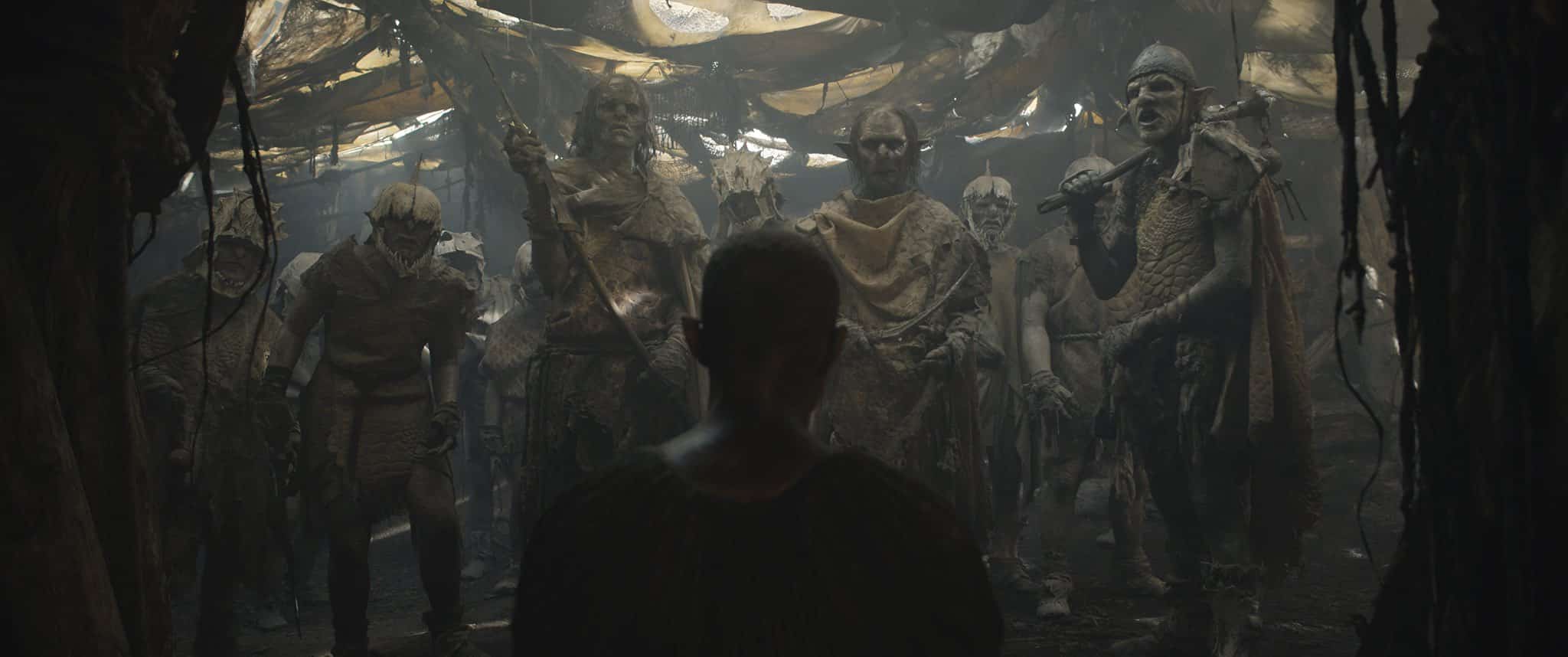
Pharazôn is obviously evil because he lacks the ability to see beyond Númenórean self-interest, vowing, “When all this is ended, elves will take orders from us.” Pharazôn’s lecture to his son Kemen (Leon Wadham) is mirrored with King Gil-galad’s (Benjamin Walker) appeal to Elrond, right down to the dismissal of the serving staff. Gil-galad urges Elrond to betray his oath of secrecy to Durin for the good of the elves. “What if keeping a promise to his people meant ensuring the doom of your own?”
Both Pharazôn and Gil-galad treat politics as a zero-sum game, assuming that for one group to thrive another must suffer. Elrond wrestles with that appeal for most of the episode, before eventually making a leap of faith himself: Instead of breaking his promise to Durin, he instead makes a direct appeal to Durin. He puts the fate of the elves in the hands of a dwarf. He looks at the bigger picture and refuses to succumb to tribalism.
It’s a theme that runs consistently through the episode, even down to Arondir’s decision to remain with the humans. It’s a much better fit for The Rings of Power than the daddy issues that resonated in “The Great Wave.” It’s also true to the larger themes of The Lord of the Rings. More than that, it’s an interesting expansion of the show’s interrogation of the film trilogy’s War on Terror resonance, critiquing recent policies of “America First” and attempts to stoke racial tensions for political gain.
Still, this newfound thematic consistency would be more impressive if it were in service of a greater sense of momentum. At the moment, it’s easy to see how the various narrative threads fit together thematically, but they are largely disconnected in terms of common purpose. Just past the season’s halfway point, The Rings of Power feels curiously stuck in place. The Rings of Power works best when it paints a picture of a wide-open world, but it needs to let the characters explore it.
Maybe not all those who wander are lost, but not all those stuck in place know where they stand.

